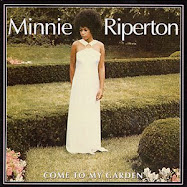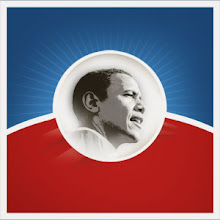Monday, January 30, 2017
Bunny Sigler
Walter "Bunny" Sigler (born March 27, 1941 in Philadelphia, Pennsylvania) is a pop and R&B songwriter and record producer who has done extensive work with the team of Kenny Gamble and Leon Huff, and who was instrumental in creating the "Philly Sound" in the early 1970s. He is nicknamed "Mr. Emotion."
Sigler has worked with most of the artists associated with the Philadelphia stable including The O'Jays, The Roots, Jackie Moore, Harold Melvin & the Blue Notes, Barbara Mason, Billy Paul, Lou Rawls, Patti LaBelle and Stephanie Mills. He also co-wrote "The Ruler's Back", the opening song on the widely respected and critically acclaimed album The Blueprint by Jay-Z.
Bunny Sigler Playlist
Originally a performer, Sigler first recorded for the V-Tone Records label in 1959. He has also recorded for the Decca, Parkway, Gamble, Philadelphia International and Gold Mind labels. Gold Mind, headed by Philly guitarist/writer/producer/arranger Norman Harris was a subsidiary of Salsoul Records. In 1967, he had a hit record on Parkway: a cover of "Let the Good Times Roll/Feel So Good," which peaked at #22 in August.
Walter Sigler sang the "23rd Psalm" at the ceremony awarding the Congressional Gold Medal to the Tuskegee Airmen on March 29, 2007, at the United States Capitol. On October 18, 2008, Sigler sang the United States National Anthem before the Kelly Pavlik vs. Bernard Hopkins boxing match. In 2009, Sigler wrote a single and performed a number of concerts with Israeli hip hop jazz fusion group Coolooloosh.
Bunny Sigler Interview with David Ivory
Bunny Sigler - Hanging With A Legend
Sunday, January 29, 2017
Barbara Mason
By Maria "Funkyflyy" Granditsky
Singer/songwriter Barbara "Lady Love" Mason, one of the true pioneers of Philly-Soul, was born in Philadelphia, Pennsylvania in 1947. Although she, like so many other young girls, had dreams of a becoming a star, she never thought it would happen to her. But it did. She was still a minor when she had her first hit record "Yes, I'm Ready" in 1965. Seven years later, she would be one of the most celebrated Soul singers, only to disappear almost completely from the public eye in the early eighties. Born in Philadelphia, Barbara Mason honed her songwriting skills as a teenager, playing keyboards on her grandmothers piano. Her father worked for the city of Philadelphia in the water department, whilst her mother worked at home (sadly passing away in 1968).
Barbara Mason, one of the few ladies of Soul who not only sang but wrote a great portion of her material, began to "mess" with her grandmother's piano at a the tender age of twelve. While still in school, Barbara formed several groups, comprised of both male and female members. Barbara, the lead singer, would come up with the songs, accompany on the piano and naturally win many of the local talent shows, which were held at a playground near her house every summer. Her next door neighbor was Bill Oxydene of the Larks, a vocal group from Philly and it was another member of that constellation, Weldon Arthur McDougal III, who offered Barbara to perform during odd spots and intervals on the Larks' shows in various nightclubs around the Philadelphia area. McDougal also introduced Barbara to Jimmy Bishop, one of the the most popular DJ's in Philadelphia at the time. Bishop was suitably impressed with Barbara's easily identifiable, innocent-sounding voice and self-penned material and after aiding in the financing of her debut single "Trouble Child" on the local Crusader label, Bishop signed her to his Arctic Records.
Barbara Mason - Yes, I'm Ready (1965)
In 1964, at the age of seventeen, Barbara cut her first hit single "Girls Have Feelings Too" which went to #31 on the U.S. charts early the following year. But it would be with her second Arctic single that Barbara made the record she'll always be remembered for. Issued in August 1965, her self-penned "Yes, I'm Ready", which today is considered a Philly-Soul classic, indeed one of the first Philly-Soul records ever, blasted off to #2 on the R&B charts and #5 Pop. Interesting to note is that a nineteen year old Kenny Gamble sang backgrounds and several musicians who later would become Philly Icons, such as Bobby Eli, Earl Young, Roland Chambers and Jack Faith, played on the song. Guitarist Norman Harris, one of Barbara's closest friends, who would play on and arrange many of her 70's albums, toured with Barbara as her music director in the 60's, but was not allowed into the studio on most Arctic sessions because he could only play by ear, not read charts.
Barbara's next release "Sad, Sad Girl" shot to #12 R&B and by 1968, after two more hits with "I Need Love" and "Oh, How It Hurts", Jimmy Bishop (who by now was the sole person handling her career) decided that she had outgrown the little Arctic label and signed her with National General in 1970. That company's main claim to fame was movie soundtracks and Barbara, who later would contribute to such classical blaxploitation flicks as "Gordon's War" and "Sheba Baby" did her first soundtrack while on National entitled "The Last Cowboy". After another album "If You Knew Him Like I Do" and a medium-sized hit with the B.J. Thomas cover "Raindrops Keep Falling On My Head", National General went out of business and Barbara was transferred to Buddah which had carried National General's products.
Her first 45 on Buddah, "The Pow Pow Song", didn't do much, but the second, "Bed And Board", which showed a more mature side of Barbara, was a sign of the great things to come. It reached #24 R&B in 1972. After her third Buddah single, the sweet "Man and Woman" failed to gain any interest, Neil Bogart, the CEO of Buddah, who later would found Casablanca Records (home to Parliament, Kiss, Donna Summer and many others), arranged for Barbara to travel to Chicago and work with Curtis Mayfield. Curtis produced two songs on Barbara's Buddah album debut; "You Can Be With The One You Don't Love" (which Barbara penned) and the title track "Give Me Your Love", a song which Curtis had written and performed in the movie "Superfly". The single reached #9 on the R&B charts in late 1972. The "Give Me Your Love" LP was cleverly promoted. The late Neil Bogart, who rightfully has been described as a marketing genius, placed a huge billboard of Barbara on Sunset Boulevard in Los Angeles, wearing nothing but a man's shirt. The photo was also included on the sleeve of the LP and inside was a large poster. "It was incredible", Barbara laughed when I interviewed her earlier this year. "People would literally take the picture out and look upside down to see if I was naked underneath that shirt! I did have something underneath, but you just couldn't see it."
Barbara Mason Playlist
The love theme continued on Barbara's sophomore set "Lady Love" issued in 1973. After furnishing the ballad "Child Of Tomorrow" to the soundtrack of the blaxploitation movie "Gordon's War", Barbara turned her attention to different subject matters. 1974's "Transition", which included her observations on social and political matters, was a labor of love. But hearing Barbara sing thought-provoking message songs like "Trigger Happy People", "Sunday Saint (Weekday Sinner) and "World In Crisis" was not what her fans wanted and regrettably the album flopped. Nor "Half Sister, Half Brother" or any of the other singles released charted, but before 1974 ended, Barbara was back on top of the charts with" From His Woman To You", her answer to Stax-diva Shirley Brown's "Woman To Woman". Unlike the previous albums -which were mainly cut at the legendary Sigma Sound Studios in Philadelphia- the splendid "Love's The Thing" was recorded in Detroit and featured the production skills of Don Davis who had worked with a virtual who's who in R&B, among those Johnnie Taylor and The Dramatics. "Love's The Thing", an essential Barbara Mason album, yielded yet another Top 10 hit "Shackin' Up" in 1975. That same year, Barbara sang on two, highly funky songs on the now hard-to-find soundtrack to "Sheba Baby". Her last recording on Buddah was a single with fellow-Philly vocal group The Futures. "Make It Last" was backed with "We Got Each Other" and was a medium sized double-sided hit in 1975.
After Neil Bogart had departed from Buddah to form Casablanca, Jimmy Bishop -Barbara's manager and main producer with whom she also had personal relationship and a son- left Buddah to work for Kenny Gamble and Leon Huff's Philadelphia International Records. Barbara, who noted a change in how the Buddah ship was run post-Neil Bogart, followed suit after having experienced a poorly promoted -but otherwise pleasant- tour with The Futures. But both on a personal and professional level, her relationship with Jimmy Bishop was falling apart. "When someone has control over not only your career, but your personal life, it's like they control your whole life..", Barbara said. "They push all the buttons for you, they say yes and they say no. And when things don't go right on one end, it affects the other end. So, the personal end was affecting my career and we weren't making much progress." Finally, Barbara broke away from both Jimmy Bishop and PIR. "What I learned from that is that business and pleasure does not mix well". Still, Barbara's not bitter. ".. I have no animosity against anyone. I feel that everybody did what they thought was best for me. Some things worked out, some things didn't.. "
She then turned to her old friend Curtis Mayfield, whom she had toured with in the sixties. Curtis was more than happy to add Barbara to his stable of Curtom artists and another Philly stalwart, Bunny Sigler, was hired to produce Barbara's Curtom debut. But as Barbara explained "..We just couldn't seem to click on the production. Bunny did the best he could but he really didn't know my style and Curtis left everything up to Bunny Sigler". The LP of duets with Sigler "Locked In This Position" came out on 1977. It was surprisingly weak, lacked any real sense of direction and didn't include a single Barbara Mason composition. Both the forgettable title track (which was issued on a 7" and 12") and the LP sunk without a trace.
The subsequent year, 1978, Barbara signed with Prelude Records and released the "I Am Your Woman, She Is Your Wife" set, which both fans and critics responded much more favorably to. Produced by her "discoverer" Weldon McDougal, the title track, a continuation on the "adultery thread" initiated by Shirley Brown's "Woman To Woman", went to #14 R&B on the U.S. Billboard chart. But this was to be a short-termed relationship. After a conflict over publishing, Barbara left Prelude, only to find that Disco ruled the airwaves and she didn't fit in. That a certain someone had been spreading sinister rumors about her being a drug and alcohol addict and extremely difficult to work with, certainly didn't help when it came to finding a new recording home. Refusing to jump on the "Disco bandwagon", as Barbara called it, she faced severe financial problems and had to turn to Norman "The Harris Machine" Harris (of M.F.S.B. and B-H-Y fame) for help. Thanks to Norman Harris, music publicist Jack "The Rapper" Gibson (who wrote about Barbara's situation) and Harry Wayne Casey (a.k.a. K.C. from the Sunshine Band) there was a happy ending. K.C., together with songstress Teri DeSario, covered "Yes, I'm Ready" in 1979 and it was a massive hit, reaching #2 on the Billboard Pop chart and selling Gold, i.e. over a million copies.
Because of Jack the Rapper's article, WMOT Records (We Men Of Talent) showed interest and in 1980 Barbara signed with the Philly-based label and released "A Piece of My Life", produced by Norman "Butch" Ingram; the brain behind Philly Cream and a member of the Ingram family (remembered in the U.K. for their club classics "Smoothin' Groovin'" and "Mi Sabrina Tequana"). "She's Got The Papers (But I Got The Man)", Barbara's response to Richard "Dimples" Field's "She's Got Papers On Me" went to #29 R&B in August 1981. Butch Ingram and Barbara continued collaborating after WMOT went out of business and in 1984, Barbara returned to the charts with the techno-funky "Another Man", yet another song on the love triangle topic, but with an intricate twist. The man which Barbara, the mistress, had taken away from his wife was according to the spoken rap "not the man we thought at all". In fact, he was gay! "It did absolutely marvelous overseas, but it did not do too well here in the United States", Barbara said. "A lot of the radio programmers and DJ's thought that the content of the record did not fit their format." Overseas, it got a different reception. "It was such a huge hit in Europe that I was supposed to go there and tour with Jeffrey Osborne but then something happened with that deal. Something also happened with my deal with West End. In fact I had to sue them because they would not pay me correctly. They made all the money from "Another Man". The only money I made was from performing a little bit in clubs around New York, but the real money that I should have gotten, the producer took it."
Barbara left the entertainment industry in the early eighties and instead chose to concentrate on forming and developing her publishing company, Marc James Music, named after her son. But in 1992, Barbara was invited to perform at the famous Greek Theatre in Los Angeles and has since then been regularly returning to the venues on the American west coast. She seems to take it in stride, but to the distress of her fans, Barbara, like so many of the "old school" R&B singers is presently without a recording contract. She would of course like one, she says, but not at any cost. "Yes, I am looking for a record deal. If someone would love to record me, I'm probably in better voice than I've ever been. I'm in better form. I'm ready to do it. But no matter what I'll always sing. I never wanna stop singing. That's what I always dreamed of doing and it came true."
BARBARA MASON STORY ON THE CHANCELLOR OF SOUL'S SOUL FACTS SHOW
She released a new CD, Feeling Blue, in September 2007. Ms Mason is still performing to sold-out audiences in 2016. Her most recent show is at the Terrance Theater in Long Beach California.
Barbara Mason was inducted into the Soul Music Hall of Fame on March 1, 2016.
Yes, Im Ready (Artic Records 1965)
Oh, How It Hurts (Arctic Records 1968)
If You Knew Him Like I Do (GNC Records 1970)
Give Me Your Love (Buddah Records 1973)
Lady Love (Buddah Records 1974)
Transition (Buddah Records 1974)
Love's The Thing (Buddah Records 1975)
Sheba Baby (Buddah Records 1975)
Locked In This Position (with Bunny Sigler) (Curtom Records 1977)
I Am Your Woman, She Is Your Wife (Prelude Records 1978)
A Piece Of My Life (WMOT Records 1980)
Tied Up (West End Records 1984)
Feeling Blue (Sunswept Music Records 2007)
Friday, January 27, 2017
Brenda Holloway
Brenda Holloway is a singer and songwriter, signed, initially, to the Motown Records imprint in the early 1960's. Brenda's sister is the singer Patrice Holloway. She was the oldest of three siblings, whose parents are Wade and Johnnie Mae (Fossett) Holloway.
Born in 1946 in California, Brenda and her family relocated to Los Angeles when she was two years old. In Los Angeles, Brenda began singing in her church choir and took up playing the violin.
Patrice was born when Brenda was five, and by the time Brenda had reached 14 years of age, Brenda and Patrice began singing backup vocals for various R&B acts in L.A., including an early version of the group the Whispers.
Brenda Holloway - playlist
From Wikipedia
In 1962, she made her recording debut with the single, "Hey Fool", released on the small Donna record label. That same year, at the age of 16, she recorded the first version of Ed Cobb's ballad, "Every Little Bit Hurts", released as a single by Del-Fi Records. She also recorded duets with Hal Davis for the Minasa and Snap labels, and worked with other local recording artists. After graduating from Jordan High School, she also studied music at Compton Community College. In late 1963, she was invited by Davis to a deejay's party which Motown CEO Berry Gordy Jr. was attending,and lip-synced to Mary Wells' hit "You Beat Me to the Punch". Gordy was impressed by Holloway's looks, and subsequently by her vocal power, and opted to sign her to Motown. Holloway was aged 17 at the time, and was Motown's first West Coast signing.
After signing with Motown's Tamla division, Holloway was given the option to either move to Detroit to record at Motown's Hitsville studios or stay in Los Angeles where Motown began hiring West Coast staffers. Holloway chose to stay in Los Angeles for the time being, and her early Motown records were produced there by Hal Davis and Marc Gordon. Holloway's first recording was "Every Little Bit Hurts", a song she had recorded two years earlier while working as a session musician. Holloway was reluctant to record the song, and later said she was upset during the sessions; several takes were recorded before producers felt that Holloway had hit her mark. Released in April 1964, three months before Holloway's eighteenth birthday, the song peaked at number thirteen on the Billboard Hot 100, winning her a spot on Motown's Motortown Revue. She was regarded as a highly talented singer. According to one biographical article,
In early 1967, Tamla released "Just Look What You've Done", which produced Holloway's best chart showing in two years, reaching no. 69 on the pop chart and no. 21 on the R&B chart. Later in 1967, the label finally issued a Holloway composition, "You've Made Me So Very Happy", which she co-wrote with her sister Patrice. Berry Gordy was allowed to change a few notes on the musical composition, giving him a songwriting credit together with the record's producer, Frank Wilson. This led to Holloway's third top forty pop single, with the song reaching no. 39 on the Hot 100 and no. 40 on the R&B chart.
Her second album, The Artistry of Brenda Holloway, was released in 1968. However, midway through a recording session with Smokey Robinson in Detroit, she left the studio and returned to Los Angeles. Motown's PR later released a statement on Holloway's departure, saying she had left to "sing for God", but her real reasons were her disillusionment with Motown and with her management, and her fear of being drawn into a lifestyle which conflicted with her religious convictions. In 1969, Holloway sued Gordy for monetary reasons stemming from the success of Blood, Sweat & Tears' cover version of her single, "You've Made Me So Very Happy", which the group had taken to no. 2 on the US pop chart that year. Holloway eventually won her case.
Brenda Holloway recorded for Holland, Dozier and Holland's labels Invictus and Music Merchant in the late 1960s and early 1970s. With her sister Patrice, she also continued session work into the 1970s, including several sessions with British rock singer Joe Cocker. She married a preacher, Albert Davis, in Los Angeles in 1969, and the couple had four children, Beoir, Unita, Christy and Dontese. In 1980, Holloway released a gospel album for Birthright Records, Brand New!, that went unnoticed. After several unhappy years, she and Albert Davis divorced in the mid-1980s. Her records remained popular on Britain's Northern soul club circuit, and many tracks were reissued on compilation CDs. In 1987, Holloway returned to a secular singing career, recording for producer Ian Levine's UK label Motorcity Records, which recorded material featuring former Motown acts.[3] Three years later, Holloway issued the album All It Takes.
She recorded the song "On The Rebound" as a duet with Jimmy Ruffin 1989, then the album All It Takes in 1991.
However, Holloway only returned to a performing career after the death of her old Motown friend Mary Wells in 1992, when she restarted performing in the Los Angeles area and in Britain, often in tandem with Brenton Wood, and on one occasion with Blood, Sweat & Tears. She also spoke at schools, and at UCLA in 1993. In 1999, she released the album It's A Woman's World for the Volt label.
Holloway continues to perform as of 2012. Her last album, My Love is Your Love, was released in 2003. Several of Holloway's classic recordings, including "Every Little Bit Hurts", "When I'm Gone" and "You've Made Me So Very Happy" were covered by a variety of acts over the years. In 2003, Vivian Green played Holloway in a cameo appearance on the TV show, American Dreams, where she sang "Every Little Bit Hurts," and, in 2005, Alicia Keys famously covered "Every Little Bit Hurts" for her Unplugged special. In 2011, Holloway recorded a duet with Cliff Richard on his Soulicious album, but did not perform with Richard on his accompanying concert tour in Britain.
In 1999 Brenda Holloway was honored with the Rhythm & Blues Foundation's prestigious Pioneer Award.
BRENDA HOLLOWAY STORY ON THE CHANCELLOR OF SOUL'S SOUL FACTS SHOW
Subscribe to:
Comments (Atom)
























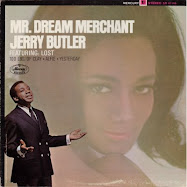


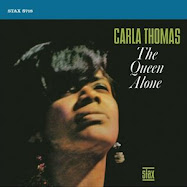
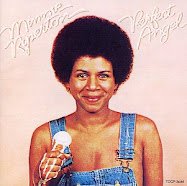.jpg)
